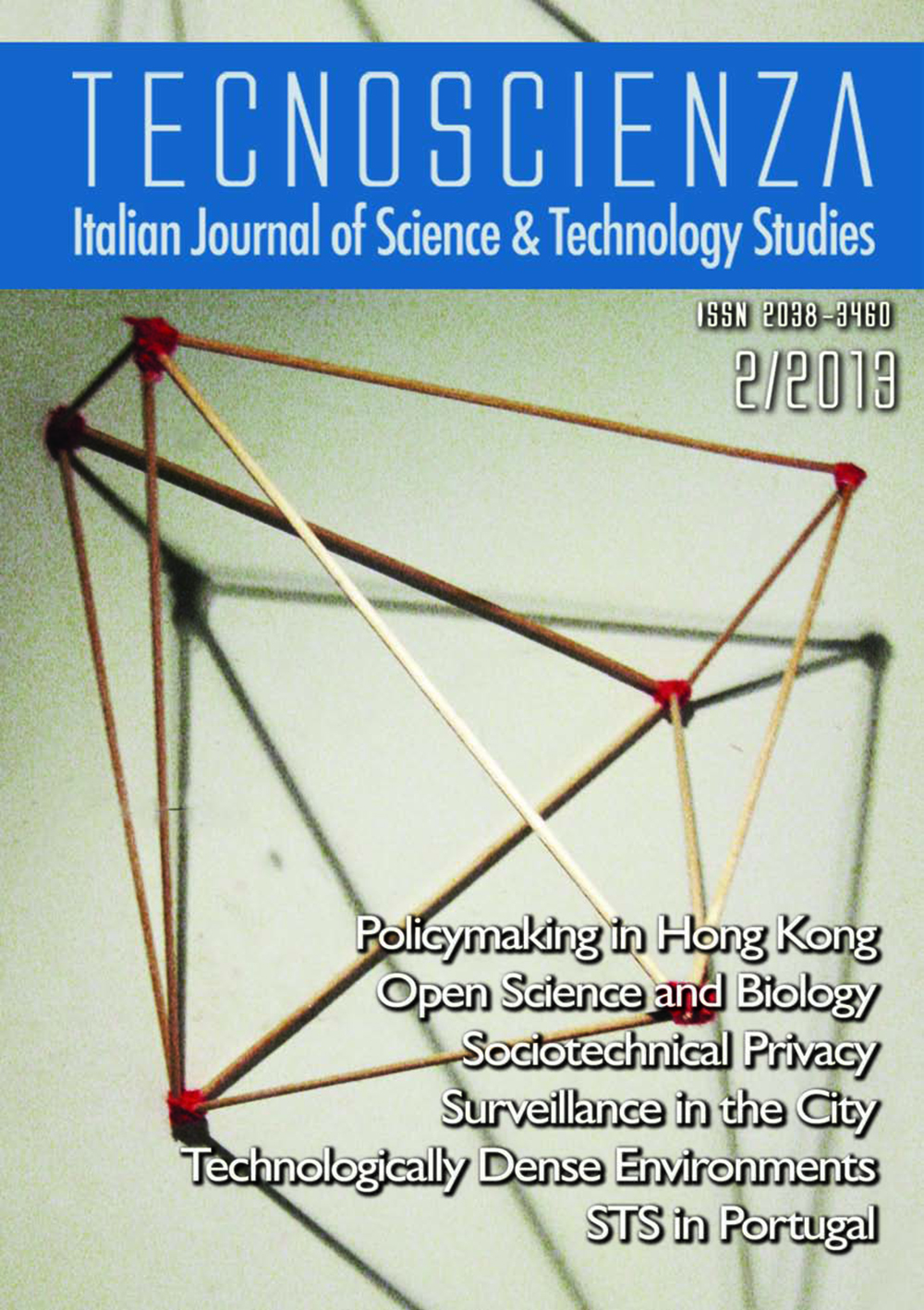Exploiting Uncertainty and Ambiguity in Policymaking. Hong Kong and Investment in the Pearl River Delta Region
DOI:
https://doi.org/10.6092/issn.2038-3460/17147Keywords:
uncertainty, ambiguity, policymaking, Hong Kong, Pearl River DeltaAbstract
Drawing on a case study on Hong Kong government policymaking, this paper identifies a potentially fruitful intersection between science and technology studies (STS) and policy studies whereby the latter would benefit from conceptual resources originating in STS. Hong Kong has sought stronger economic ties with the Pearl River Delta (PRD) region of Mainland China since the late 1990s, using social and economic indicators to promote increased investment in the region. During this process Hong Kong effectively expunged uncertainty (creating a “certainty trough”) while constructing a definitive representation of the PRD region to serve as a social technology in public policy discourse. The paper argues that the government exploited a form of interpretive uncertainty – ambiguity – to attract potential investors, suggesting that STS concepts, such as the coproduction of social technologies and MacKenzie’s (1990) “certainty trough”, could be effective tools for analyzing social and economic policymaking.





